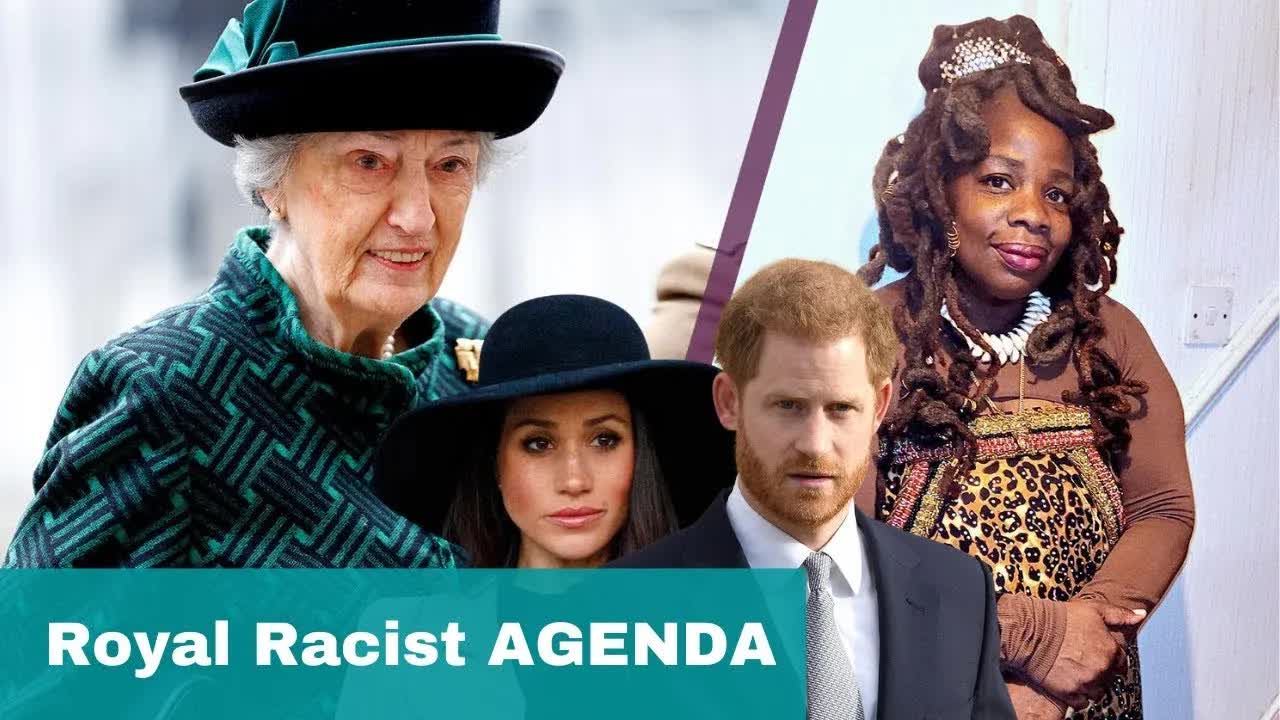In a surprising turn of events, Lady Susan Hussey, a long-serving aide to Queen Elizabeth, has stepped down following allegations of racism.
The incident, which took place at a Buckingham Palace charity event, has sparked widespread debate about cultural misunderstandings and the nature of curiosity in conversations.
So, what exactly happened?
Lady Hussey reportedly asked Ngozi Fulani, a black British charity director, where she was “really from” shortly after meeting her.
This question, seemingly innocent to some, ignited a firestorm of criticism, leading many to label Hussey’s inquiries as racially insensitive.
But is asking about someone’s background inherently racist?
One could argue that curiosity is a natural part of human interaction.
When we meet someone new, it’s common to wonder about their story—where they come from, their heritage, and their experiences.
In this case, Lady Hussey’s questions seemed to stem from a genuine interest, especially considering Fulani was wearing traditional African attire.
Yet, the reaction to these questions raises an important point about how such inquiries can be perceived, particularly in a society increasingly attuned to issues of race and identity.
Fulani, who leads the East London charity Sista Space, felt uncomfortable with the persistent questioning.
She claimed that within minutes of arriving at the event, Hussey moved her hair to see her name badge and continued to probe about her origins.
This action, along with the nature of the questions, led Fulani to feel that Hussey was undermining her identity as a British citizen.
The palace quickly responded to the backlash, stating they took the matter seriously and would conduct an investigation.
It’s clear that the royal household is aware of the delicate nature of such allegations and the potential fallout if not handled properly.
Ignoring the situation could have led to further scrutiny and criticism, especially in an age where social media amplifies public sentiment.
But here’s where it gets tricky.
Is it fair to label someone a racist simply for asking questions?
Many people, including those familiar with cultural exchanges, might argue that Hussey’s intentions were misconstrued.
After all, isn’t it a compliment when someone expresses interest in your heritage?
This incident also sheds light on the broader issue of cultural sensitivity.
Lady Hussey, who has served the royal family for over six decades, may not have fully understood the implications of her questions in a contemporary context.
It raises the question: should people be educated about cultural differences to prevent misunderstandings like this from occurring in the future?
On the flip side, Fulani’s reaction highlights the importance of recognizing when inquiries cross a line into insensitivity.
In a world where racial dynamics are complex and often fraught, individuals may feel justified in protecting their identities from what they perceive as intrusive questioning.
Moreover, this incident isn’t just about one person’s resignation; it reflects a larger societal conversation about race, identity, and the fine line between curiosity and insensitivity.
For many, being asked about their background can evoke pride, while for others, it may feel like an unwelcome reminder of their difference.
As the royal family navigates this controversy, it’s essential to understand that these discussions are not merely about right or wrong.
They represent an opportunity for growth and understanding across diverse cultures.
Perhaps this incident will serve as a catalyst for more significant discussions about race, identity, and the ways we connect with one another in our increasingly interconnected world.
With Lady Hussey’s departure, the royal household faces the challenge of addressing the fallout while also reflecting on the lessons learned from this situation.
It’s a reminder that in our quest for connection, we must tread carefully, ensuring that our curiosity fosters dialogue rather than division.










